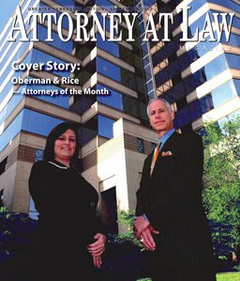The Crime
A drug charge can often be a felony offense that can seriously damage your record and your reputation. In Tennessee, a person may be convicted of a Felony Drug Offense if the state prosecutor proves beyond a reasonable doubt that the person knowingly:
- Manufactured a Controlled Substance; or
- Delivered a Controlled Substance; or
- Sold a Controlled Substance; or
- Possessed a Controlled Substance with the Intent to Manufacture, Deliver, or Sell it.
If you have been charged with a drug offense, you should seek help from the Knoxville criminal defense attorneys at the Oberman & Rice Law Firm.
[Source: Tennessee Code Annotated § 39-17-417]
What is a Controlled Substance?
“Controlled substance” means a drug, substance, or immediate precursor to a drug (e.g., cannabis seeds in the case of marijuana and pseudoephedrine for methamphetamine). Illegal drugs and many prescription drugs are grouped together into seven categories, which are referred to by law as “Schedules.”
Each Schedule contains drugs with similar risks of addiction, medical benefits, and potential for abuse, regardless of whether the drug is illegal by nature (e.g., Heroin, Cocain, LSD, etc.) or may be lawfully prescribed (Alprazolam, Hydrocodone, Amphetamine, etc.). In general, Schedule I drugs are considered to have the highest potential for abuse and are not known to have any accepted medical use. In contrast, Schedule V-VII drugs are believed to have a much lower potential for abuse and risk to the public health.
The following is a partial list of the drugs in each Schedule:
- Schedule I: Heroin, Lysergic Acid Diethylamide (LSD), 3, 4-Methylenedioxymethamphetamine (Ecstasy), Psilocybin (Mushrooms), and Mescaline;
- Schedule II: Hydrocodone, Oxycodone (Percocet®, Endocet®, Roxicet®, and Oxycontin®), Opium, Codeine, Hydromorphone (Dilaudid®), Methadone (Dolophine®), Meperidine (Demerol®), Fentanyl (Sublimaze® or Duragesic®); Amphetamine (Dexedrine®, Adderall®), Methylphenidate (Ritalin®), Cocaine, Amobarbital, Glutethimide, and Pentobarbital;
- Schedule III: Hydrocodone in dosage amounts less than 15 mg (Vicodin®, Lortab®, Norco®), Ketamine, and Anabolic Steroids;
- Schedule IV: Propoxyphene (Darvon® and Darvocet-N 100®), Alprazolam (Xanax®), Clonazepam (Klonopin®), Clorazepate (Tranxene®), Diazepam (Valium®), Lorazepam (Ativan®), Midazolam (Versed®), Temazepam (Restoril®), and Triazolam (Halcion®);
- Schedule V: Smaller dosages of certain Schedule IV substances;
- Schedule VI: Marijuana and Hashish.
- Schedule VII: Butyl nitrate.
[Source: Tennessee Code Annotated §§ 39-17-402 to 39-17-416]
The Penalties
Tennessee law specifies that the fines (as great as $100,000), sentence lengths (as long as 60 years in prison), periods of required prison time, and court costs for Felony Drug Offenses vary significantly and depend upon:
- The amount of controlled substance(s) seized by law enforcement;
- The type of controlled substance(s) seized by law enforcement;
- Whether a deadly weapon was carried or employed during the commission the offense; and
- Whether the controlled substances were located within 1000 feet of the property of a school (including preschools), childcare agency, public library, recreational center, or park.
In general, Felony Drug Offense laws are complex and require a careful review of the facts by a knowledgeable and experienced Criminal Defense Lawyer.
[Source: Tennessee Code Annotated §§ 39-17-417, 39-17-428, 39-17-432]
Other Consequences of a Felony Drug Conviction
In addition to the court-mandated penalties described above, a person convicted of Felony Drug Offense may also experience serious collateral (other) consequences. A Felony Drug conviction may result in the loss of college scholarships or the ability to seek admission to a higher learning institution. A conviction may also impact one’s ability to maintain or seek employment, and result in negative action to a professional license (e.g., nursing).
Except in rare circumstances a conviction for Felony Drug Offense will ALWAYS stay on a person’s public record (criminal history). This means that current and future employers may access records of Tennessee criminal convictions. For more information about Tennessee expungement law, visit our sister website, http://www.eraseyourrecord.com/index.html.
Why Hire An Attorney Immediately?
It is important to act quickly in order to gather and preserve favorable evidence. Key evidence (faces, dates, events, and conversations) fades from memory over time. Certain witnesses need to be interviewed as soon as possible. Also, video recordings and other evidence may be destroyed, so it’s crucial to begin your investigation as soon as possible. Success or failure in any criminal case may be determined in the decisions of the defendant and his or herTennessee Criminal Attorney in only a few hours or days after an arrest is made.
Contact Us Today
If you or someone you know has recently been charged, contact the Oberman & Rice Law Firm today so that we can begin preparing a defense for your case. Submit your information for a free case evaluation from our Knoxville drug attorneys or call our office at 865-249-7200.
Featured Posts
 March 25, 2025
March 25, 2025
Tennessee Drivers’ Licenses May Go Electronic
Tennessee Senate Bill 1297 was introduced this year proposing to allow Tennesseans to use Digital Driver’s Licenses (DDLs) as a valid form of identification wherever an ID is legally required, except for voting. The DDLs would allow Tennesseans to download an […]
Read More
 February 26, 2025
February 26, 2025
Potential Change in Legislation for Providing Proof of Registration to Law Enforcement
When a driver is pulled over in Tennessee for any reason, the normal request from law enforcement is: “Please provide me with your driver’s license, insurance, and proof of registration.” If you are like this author, digging through your glovebox […]
Read More February 17, 2025
February 17, 2025
Domestic Violence/Domestic Assault/Domestic Abuse Definitions
Domestic Violence/Domestic Assault/Domestic Abuse Definitions We are often asked about the difference between an assault (sometimes referred to as a “simple” assault), and a domestic abuse assault. This is an important distinction in the law because there are different bond […]
Read MoreContact
Office
Oberman & Rice
550 Main Street
Suite 730
Knoxville, TN 37902
Phone Number
(865) 249-7200
(865) 540-1696 (fax)
GPS Coordinates
Long: 35.970504
Lat: -83.914776
Useful Links
contact us today for a free consultation
We reply to non-urgent after-hours requests for consultation within 24 hours. For after-hour emergencies, please call us at (865) 249-7200.














